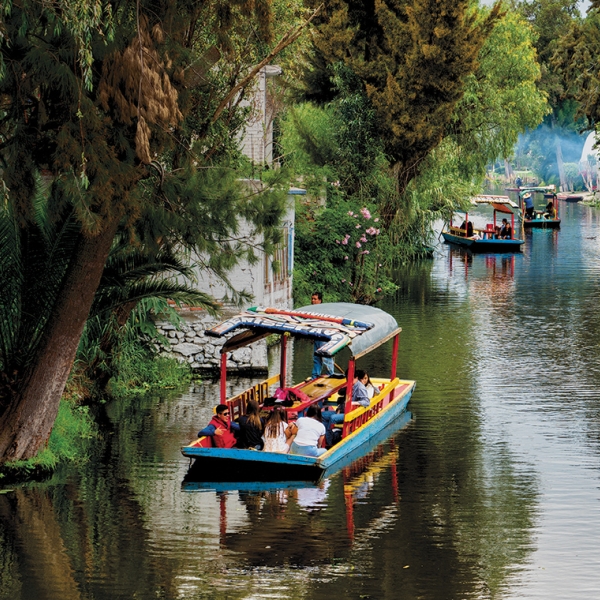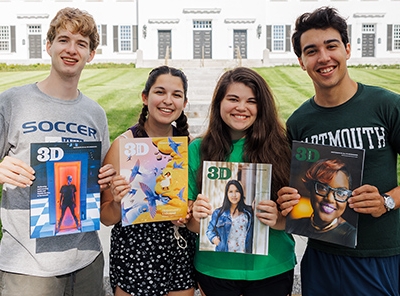Students Share How Dartmouth's Language Immersion Programs Benefit Their Mental Health
When Sasha Usher '25 signed up to study abroad in Berlin during their sophomore fall, they hoped to improve their German language skills while also learning how to navigate a new country. What they didn't anticipate was the immense positive impact the experience had on their mental and emotional health.
"I never would've expected the kind of growth that happened by nature of having that much freedom in a country," says Sasha, who hails from Boulder, Colorado.
Sasha's experience sounds familiar to Gerd Gemünden, a professor of German studies, film and media studies, and comparative literature. This past year, as he reviewed student evaluations of the German studies department's Language Study Abroad and Foreign Study Program, a theme caught his attention.
"Usually students say they enjoy the experience of being abroad and leaving a familiar environment behind," Gemünden says. "But there were several who specifically mentioned that they felt like it was a benefit to their mental health."
Freedom to Slow Down
Language immersion programs boost students' mental health in distinct ways, say Usher and Gemünden. First, the programs provide students with a greater sense of independence than ever before.
"As I learned Italian, I also learned new cultural norms, values, and ways of life," says Sohini Mandal '26 of her time on the Department of French and Italian's Full Immersion in Rome Experience. "I became more independent and gained insight into who I am as an adult."
Alice Cook '25 agrees that the independence afforded her on the Berlin Foreign Study Program was formative. "I got comfortable with city life and riding public transit. At the end of the program, I spent a week traveling by myself in southern Germany, which was definitely something I wasn't prepared to do prior to beginning the program."
Sasha points out that being abroad was also extremely "freeing," as "you can be whoever you want to be for the first time." And equally as important, they add, you have the freedom to fail.
"I think the person Dartmouth attracts is someone who has very high standards for themselves," Sasha explains. "But to be able to accept failure in a lot of different aspects of life is so important, and it was one of the biggest takeaways."
Forming Crucial Connections
The opportunity to form bonds with a host family, with other Dartmouth students, or with other individuals in the city was also beneficial for many participants. Not only do these relationships strengthen students' social skills, but they also open students' eyes to other ways of living and provide a sense of belonging and community.
"Being in another culture made me feel free from the expectations of the culture I knew well back home," says Chase Harvey '25, who credits the Rome program with helping him learn how to form deep, long-lasting relationships.
Sasha's host was a friendly octogenarian who had opened her doors to two other students. "All of us lived very independent lives but we could come back and have these lovely conversations. These people had an amazing influence on who I decide to be as an adult."
This story is adapted from an article that appeared on Dartmouth's Faculty of Arts and Sciences website in December 2023.




